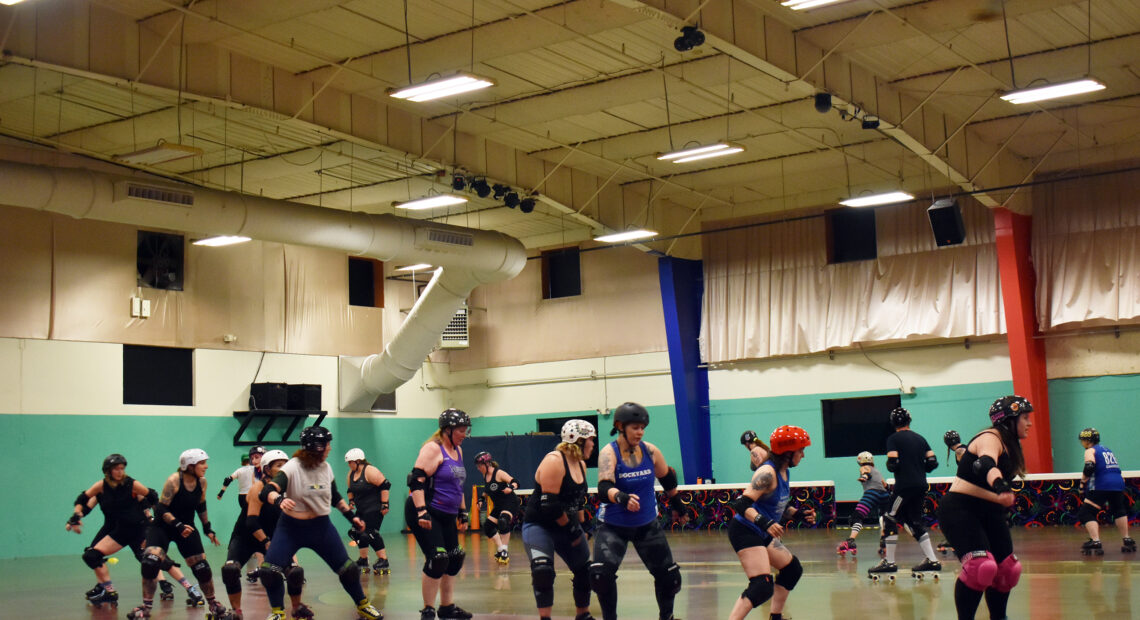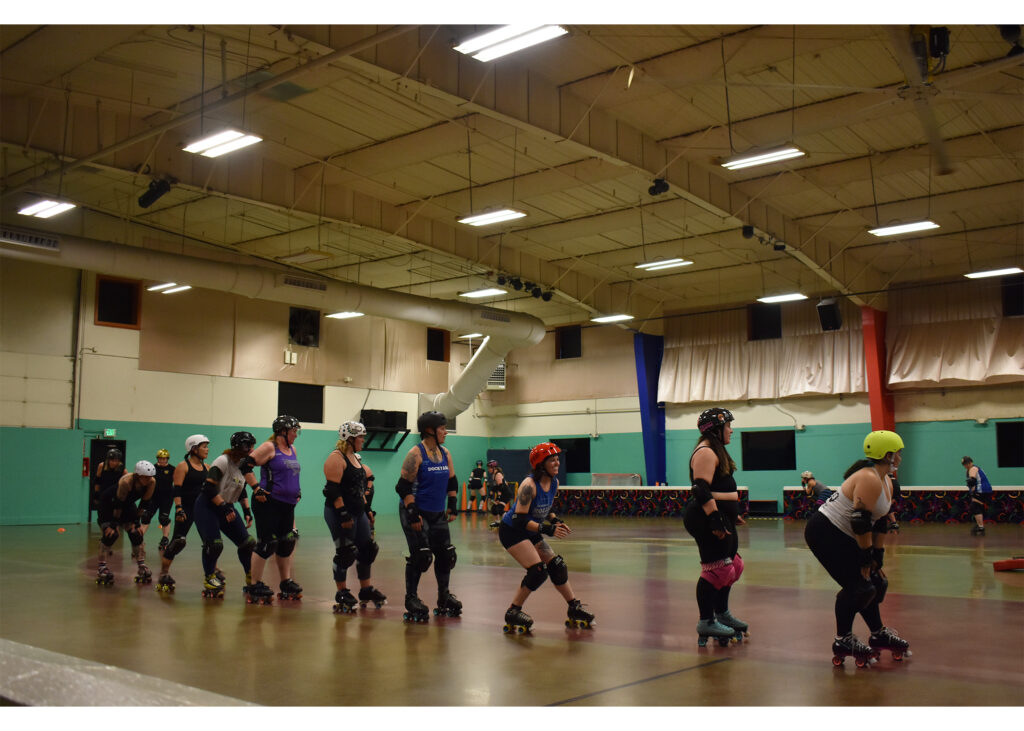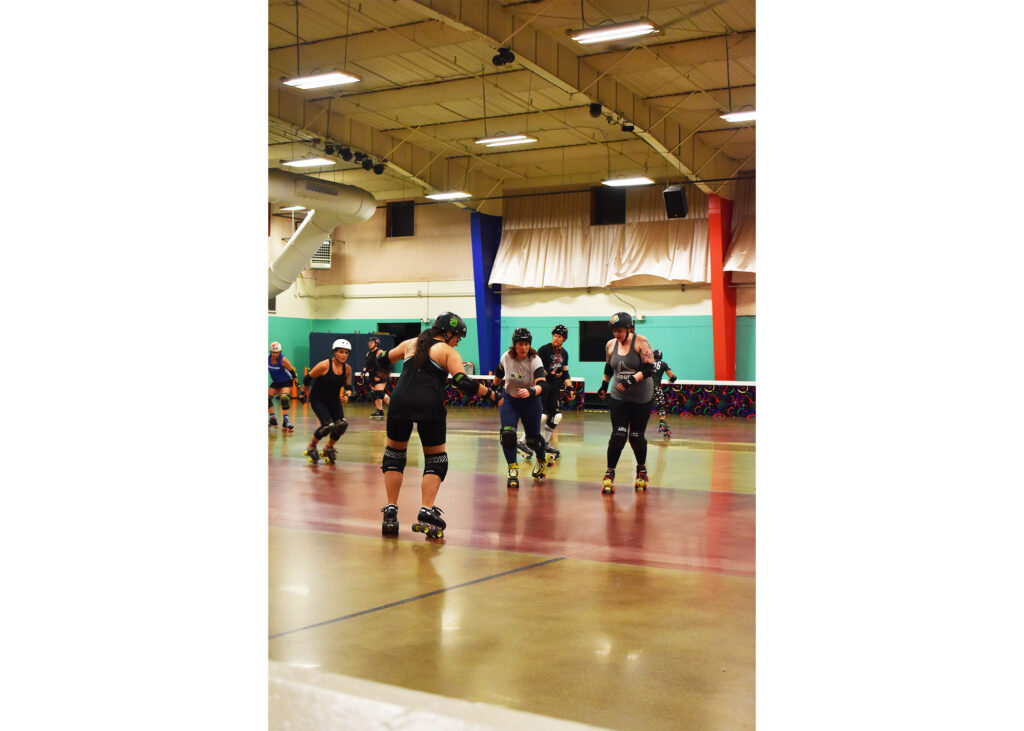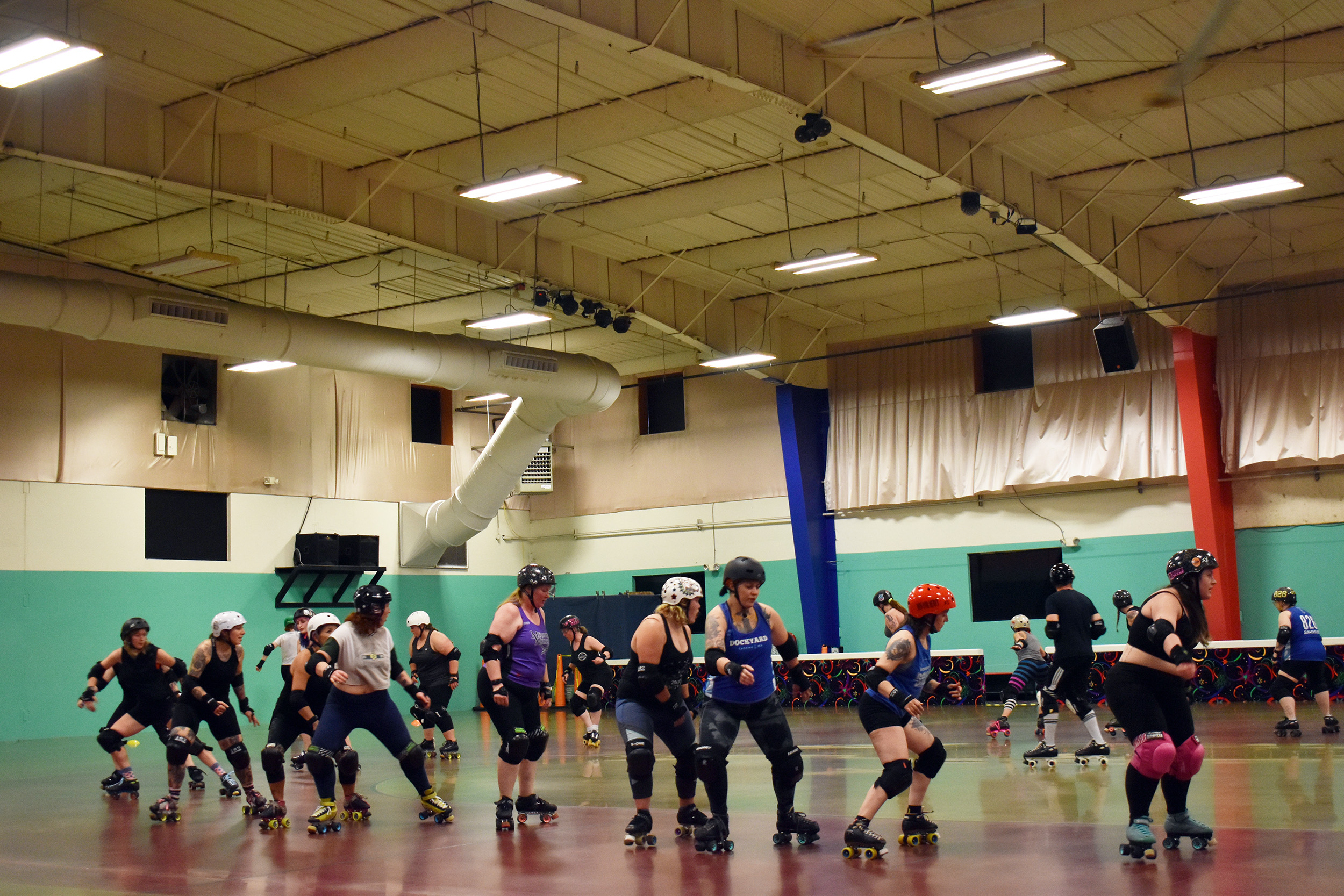
Pride in Sports: Dockyard Roller Derby
Listen
(Runtime 4:04)
Read
Sense of community. Belonging. Teamwork. Identity. These are feelings that can come from playing a team sport. However, sports often are also gendered spaces that align with traditional societal expectations. Then, there’s roller derby, which has a history of defying traditional female roles and giving a space for women to compete.
One derby league, Dockyard Roller Derby in Tacoma, is questioning how it can strive to be a more inclusive, safe and supportive space for more folks under the LGBTQ+ umbrella.
Abigail Vander Austin, known as, “Graze My Anatomy” on the track, is new to the league, but has been doing derby for a while.
“Roller derby was the first place that I could talk about being queer without getting the like, side eye, or really awkward conversations,” Vander Austin said.
Her hometown league offered pride bouts, and she found that most players wore their pronouns on their helmets. When she moved to Western Washington, she joined Dockyard Roller Derby, which is an open gender league.
“There’s not a lot of spaces where you can go and have fun positive connections with other women and other, you know, nonbinary, AFAB [assigned female at birth] folks,” Vander Austin said. “I do think that there’s kind of a big push to create community in derby.”

At the Dockyard Roller Derby practice, skaters drill moving within different lanes on the track. (Credit: Lauren Gallup / NWPB)
But creating that welcoming community only comes with effort.
Clarity Dickinson, another Dockyard skater, started the pickup league, Queer Squad Washington, seven years ago for queer skaters and active allies following a homophobic incident on another team. After that moment, she said they realized they needed a safer space.
“We needed to skate as a group, rather than just participants on a league, to show just that we’re not going to put up with it,” Dickinson said.
While derby’s origins come from a place of more inclusivity, Dickinson pushed back on the idea that derby is inherently a safe space for all identities.

Skaters describe their league as, “a family that holds each other to account to be inclusive.” (Credit: Lauren Gallup / NWPB)
“As soon as you declare any place or culture a, ‘safe space,’ it’s automatically not,” Dickinson said.
A supportive space doesn’t come automatically, Dickinson said. Community members need to be vigilant and understand that those letters cover a lot of people. While derby often provided a supportive space for cisgendered, white, queer people, Dickinson said a lot of skaters don’t fall into those categories.
MeLisa Carson-Goldie, who’s derby name is, “Nicole Plated,” said players on the league have ongoing conversations about how they can be more inclusive of all identities.
Carson-Goldie coaches a junior derby team and sees the next generation working with the support of a plethora of adults toward achieving more inclusivity.
“I think being diligent about making a safe space requires people to really think about things, and policies and the way that things work,” Carson-Goldie said. “When you’re talking about an all-volunteer run group, there’s not always a lot of time and space for that. And, I think things sometimes get overlooked.”
Derby takes buy-in. The players, coaches and referees are all volunteers. That dedication transcends more than just the skaters’ drive for the sport and pushes them to create a place for community, Dickinson said.
She compared derby to sitting down at a family table with all kinds of relatives. But at this table, she said, people who make hateful comments aren’t invited to the next meal.
“That’s where derby draws the line,” Dickinson said. “And it does become a safe space.”
















